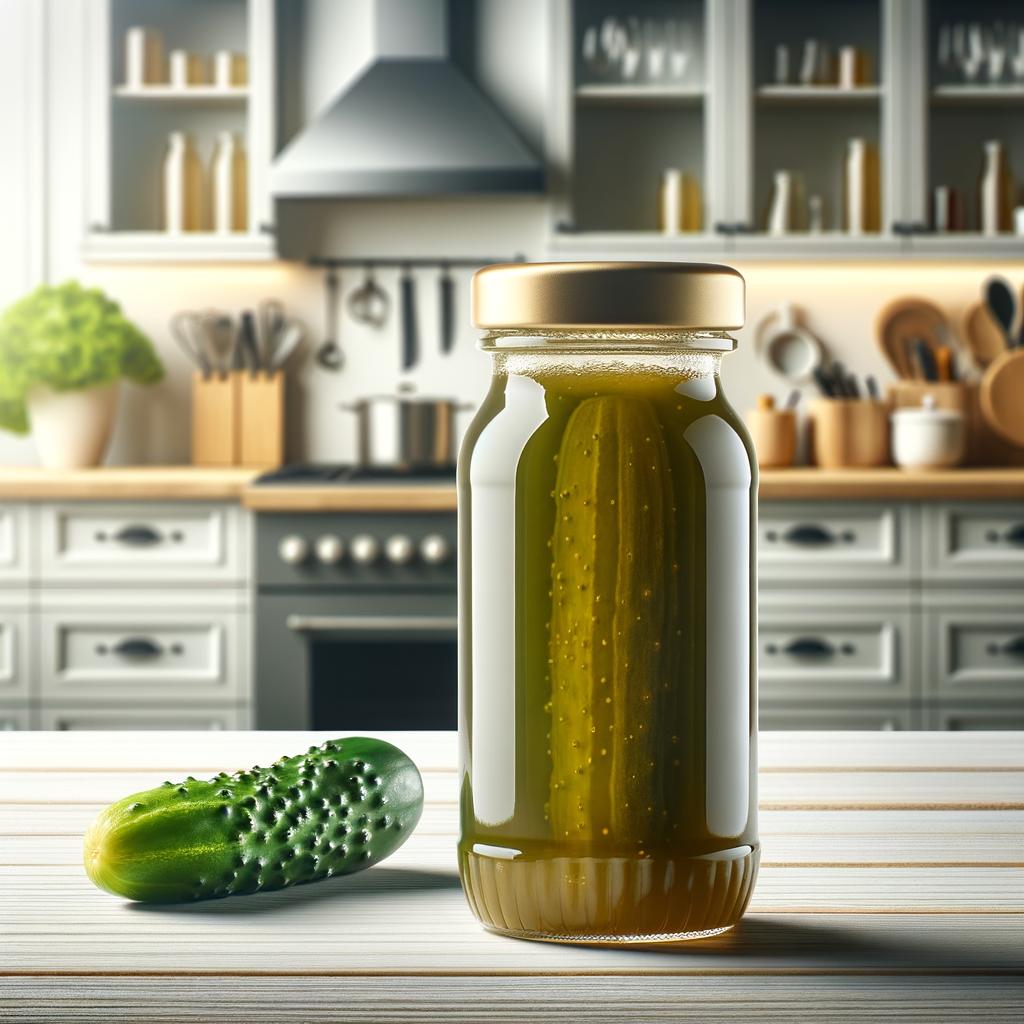Pickle Juice

Description
Pickle juice, the tangy elixir that bathes the beloved pickles, is a humble yet potent ingredient. Its appearance is a translucent liquid, usually a pale yellow or greenish hue, depending on the type of pickles it was used to preserve. The texture is watery, but its flavor is anything but simple. It boasts a unique combination of sour, salty, and sometimes sweet undertones, a testament to the vinegar, salt, and sugar that often comprise its base. The real charm of pickle juice lies in its distinctive tanginess, a result of fermentation or vinegar-based pickling, setting it apart from other brines.
Primary Uses
Pickle juice is not just a byproduct of pickling cucumbers. It is a versatile ingredient, often used in a variety of culinary applications. In cooking, it can be used as a meat tenderizer, a marinade for poultry, or even as a salad dressing. It also finds its place in the world of mixology, being a key component in cocktails like the Pickleback or the Dirty Martini. Beyond the culinary world, pickle juice is known for its rehydrating properties, making it a popular choice among athletes. It also holds a cultural significance in some regions, being consumed as a traditional hangover cure.
History
The history of pickle juice is as rich and tangy as its flavor. Its origins trace back to ancient Mesopotamia, around 2400 BC, where cucumbers were first pickled. This method of food preservation quickly spread across the globe, from the salty garum of Rome to the sour dills of Eastern Europe. Over time, the juice of these pickles began to be valued for its own unique properties. In American folklore, pickle juice was often seen as a remedy for common ailments, from stomachaches to muscle cramps. The use and popularity of pickle juice have only grown over time, evolving from a simple byproduct to a celebrated culinary ingredient.
Nutritional Information
Nutritionally, pickle juice is a powerhouse. It's rich in electrolytes like sodium and potassium, making it an excellent choice for hydration. It also contains small amounts of calcium and magnesium. The vinegar in pickle juice is believed to have several health benefits, including improved digestion and blood sugar control. However, due to its high sodium content, it should be consumed in moderation, particularly by individuals with high blood pressure or heart conditions. Compared to other brines, pickle juice often has a higher electrolyte content due to the pickling process, making it a unique ingredient in its own right.
So, the next time you finish a jar of pickles, think twice before you pour that precious juice down the drain. It's a piece of culinary history with a flavor profile as rich as its past.

